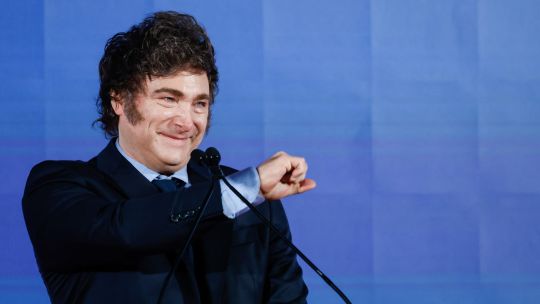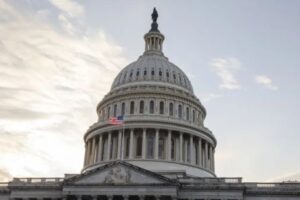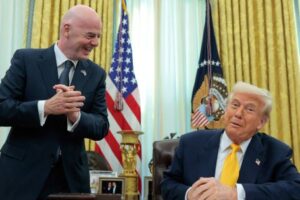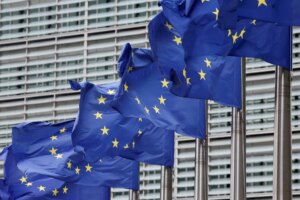
A throng of Argentine business leaders who descended this week on a beach resort tried to leave behind the political and market turmoil gripping the country so they could ponder the future. Their efforts were near impossible to sustain.
“What’s happened over the past week is short-term noise; our focus shouldn’t be there,” said Fabian Kon, chief executive officer of banking group Grupo Financiero Galicia, who helped organise the annual gathering. “There’s still so much to do to build the Argentina that we want to see. But when you chat on the sidelines, you can’t escape the extreme volatility.”
The conference in the city of Mar del Plata, attended by about 1,000 executives, was mostly a whirlwind of theoretical discussions about how to make Argentine companies more competitive in the long run.
A football metaphor – “Argentina takes to the field” – was the theme for the week, with former national team star Javier Zanetti opening the summit at the local Sheraton hotel. He talked about what it takes to win and his new life in the boardroom at Inter Milan.
Off stage, however, there was no hiding the elephant in the room: a national midterm election just a few days away that’s pivotal for President Javier Milei and the companies themselves since his libertarian reforms are seen as a trampoline to growth.
Outside the main hall, conversation drifted between the national election and volatility in financial markets that, even by Argentine standards, has been drastic ever since Milei’s landslide defeat in a local vote last month. US President Donald Trump’s pledge to step in with billions of dollars to help Milei is only accentuating the erratic trading.
“You can tell we’re only 10 days out from the vote; there’s a real state of suspense,” said Ignacio Celorrio, a vice-president at Lithium Argentina. “But we shouldn’t fear the timing and circumstances of an election. Argentina has a great chance to develop its potential when there’s consensus to prioritize long-term investments.”
Milei’s signature “RIGI” law aims to do just that with a special set of taxes and currency and customs rules – guaranteed for 30 years to shield from political and economic volatility. The lithium and mining industries are positioned to be among the major beneficiaries.
Roberto Murchison, CEO of ports company Grupo Murchison, said unearthing Argentina’s vast metals resources is an opportunity to develop logistics infrastructure along the Paraná River commerce waterway.
“You have to put your distance glasses on when doing business and not look too much at the ups and downs right in front of you,” Murchison said. He added that the broad arc of Argentine elections in recent years marks a clear trend of voting for a more open economy, which favours companies across the spectrum.
But some Argentines seem to be tiring of Milei’s painful transition to freer markets. His loss in Buenos Aires Province, where roughly one-third of the country lives, sparked so much panic that US Treasury Secretary Scott Bessent has tried to come to the rescue.
And as executives headed out to padel courts and vineyards for a break, just a few blocks from the Sheraton, on Mar del Plata’s sweeping seafront, there were signs of the daily struggle.
“I work these beaches from end to end and it’s tough out there,” said Lorena Buono, who has a stand selling dresses. She recalled better times when, under the previous leftist government, there were tourism subsidies. “October is normally a good month, but there’s nobody here.”
Marta González, a physical-education teacher, said it’s unfortunate that there aren’t closer ties between the annual summit and the city that hosts it. “It’s a bit abstract,” she said. “It seems like a bunch of businessmen deciding how to run the country, while ordinary people have no say.”
Mariano Wechsler, CEO of Teamcubation, which trains software coders, said he recognised “a sort of friction” in the current situation. “The problem is that this transition period hurts,” Wechsler said. “People have short-term needs, while we are able to think and act long term.”
All things considered, it’s “always” the right time to defend business interests, said Santiago Mignone, president of Idea, the corporate-lobbying group that organised the conference, and a senior partner at PwC Argentina. “You’re going to have lots of volatility along the way, but our agenda doesn’t change.”
related news
by Jonathan Gilbert, Bloomberg





